The Forestry Stewardship Council (FSC) is a global organization dedicated to responsible forest management. FSC certification, which was established in 1993, is now the most widely accepted certification for responsible forest management, with over 250 million hectares of certified forests worldwide.
FSC certification provides a framework for businesses, organizations, and individuals to ensure that their paper and wood products are sourced from responsibly managed forests that benefit both the environment and the economy.
FSC standards promote forest conservation and restoration, as well as indigenous people and local communities’ rights. FSC certification ensures that users of wood and paper products such as coffee cup are supporting healthy forests and communities while also helping to protect the world’s forests for future generations.
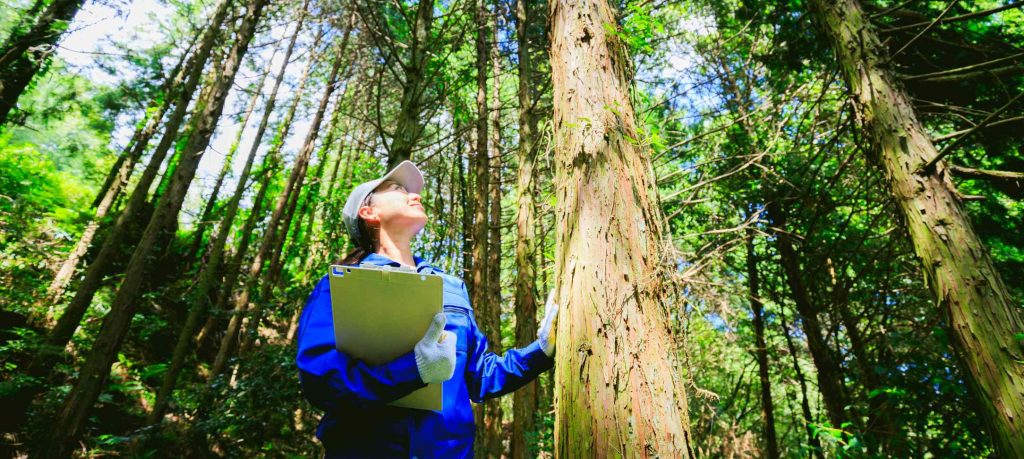
Overview of FSC™ and Mission
The FSC’s original goal was to ensure that the world’s forests were managed in such a way that they could be used in the future.
The FSC was founded in 1993 as a collaboration between the WWF and the International Union for Conservation of Nature (IUCN). Its goal was to establish a global standard for responsible forest management that could be applied to all forests around the world.
The FSC currently has affiliates in over 90 countries and works with a diverse range of stakeholders in the forest industries, including forest owners, processors, and traders, as well as environmental and social non-governmental organizations (NGOs).
The FSC is a non-profit organization that is unaffiliated with the government or industry. Its secretariat is based in Switzerland and is funded by membership and certification fees. The FSC has a democratic structure and a policy-making board of directors comprised of an equal number of representatives from industry and the environment.
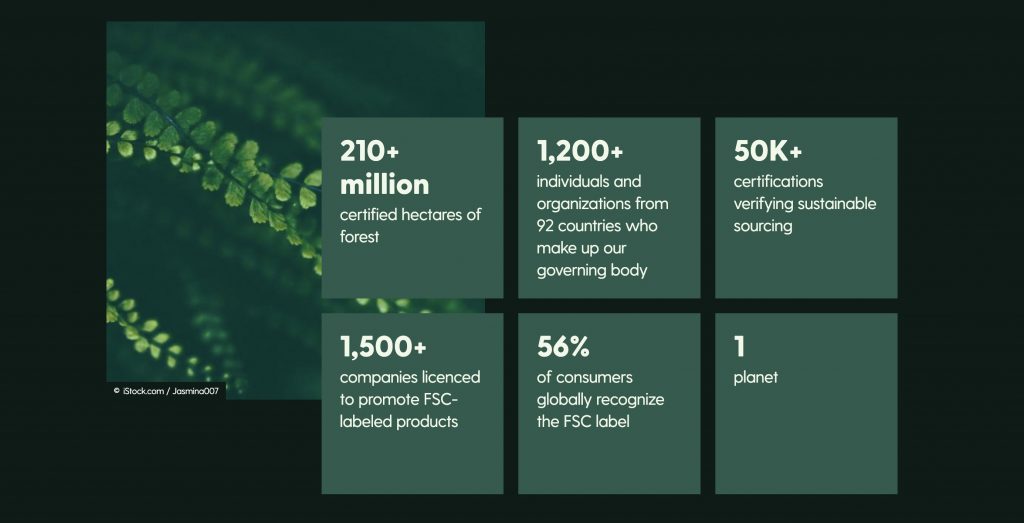
Benefits of FSC™ Certification
Forest owners, processors, and traders interested in certifying their operations should contact one of the FSC’s independent third-party certification bodies.
These forests and their products are given the FSC label once they have been certified. Consumers, retailers, and other buyers of forest products all over the world rely on the FSC label.
The number of forest product buyers requiring FSC certification from their suppliers has increased dramatically in recent years.
Many buyers prefer FSC-certified forest products because they are assured that they were produced from responsibly managed forests. This gives FSC forest owners and processors a competitive advantage because they can charge a premium for their products.
FSC certification also provides a number of additional benefits, including:
- Forest conservation and restoration will be improved.
- Indigenous peoples and local communities’ rights are recognized and respected.
- Access to new markets – Raw material sourcing that is sustainable.
- Public perception and reputation.
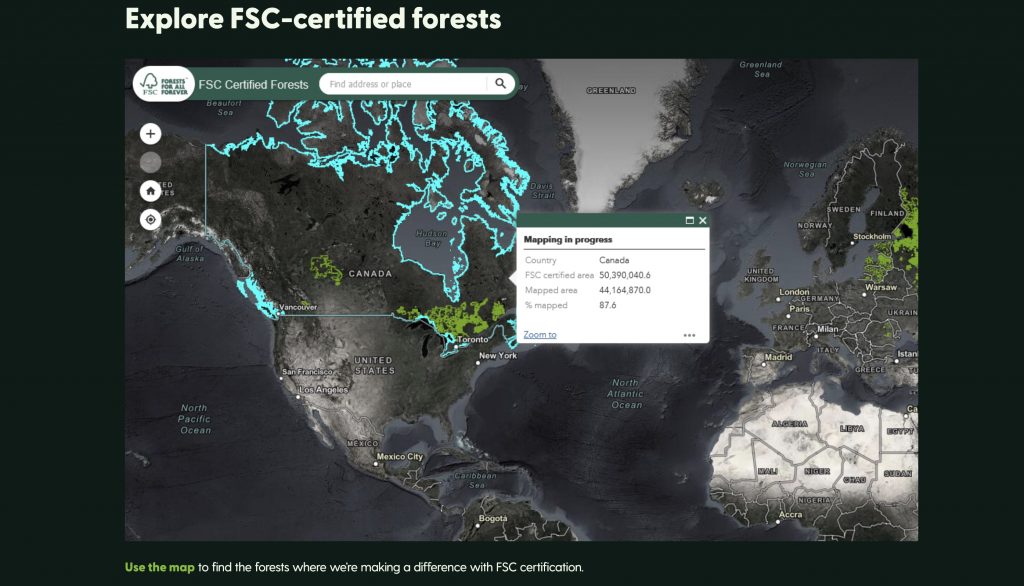
Principles of FSC™ Certification
FSC’s 10 principles are the foundation of our forestry standard.
Developed to be relevant to different kinds of forest ecosystems and in diverse cultural, political, and legal settings, they require any managers of certified forests to:
- comply with all applicable laws;
- maintain or improve the social and economic well-being of workers;
- uphold the rights of Indigenous Peoples
- maintain or improve the social and economic well-being of local communities;
- manage their products and services in a way that maintains or improves their long-term economic viability, social benefits, and environmental benefits;
- maintain, conserve, and/or restore the ecosystem services and environmental values of managed forests; and also avoid, repair, or mitigate negative environmental impacts;
- establish a management plan that outlines their economic, environmental, and social policies and objectives;
- demonstrate progress toward meeting these objectives;
- maintain or improve high conservation values;
- ensure that all management activities comply with FSC principles and criteria.

Standards of FSC™ Certification
Protecting forests starts with rigorous standards
The FSC has established standards for the three forest resources listed below:
Timber – The timber standard specifies principles for sustainable forest management as well as the rights and responsibilities of forest owners and forest workers.
Forest Products – The forest products standard encompasses all plant-derived materials derived from forests, such as paper and cardboard; rubber; food, medicinal, and tropical plants; and non-wood forest products.
Plantation Forests – The plantation forest standard specifies principles for sustainable forest management as well as the rights and responsibilities of forest owners and forest workers.

How to Become FSC™ Certified
A forest owner or operator must apply for certification and undergo an independent assessment by a certification body in order to become FSC certified. Once certified, the forest owner or operator must keep their certification current through a process of continuous improvement.
The forest must be monitored by a forest management system that ensures that it is managed in accordance with the standard, and the operator must provide information to it on an annual basis. To achieve certification, the forest owner or operator must commit to meeting the requirements of the FSC standard as well as the expectations of the body. It is a difficult process that necessitates the cooperation of forest owners and operators, as well as the certification body.
Who produces an FSC Certified Product? The Government of Bhutan, the Government of the Philippines, the Government of Malaysia, the Canadian Province of Ontario, and the Australian state of Tasmania are among the world’s largest forest owners and operators to become FSC certified.
Many of these governments have ambitious conservation and replanting goals, and they have chosen FSC certification as one of the most effective ways to demonstrate their commitment and progress toward those goals. Many of the world’s largest forest product companies, including the Finnish forest products company UPM, the Japanese paper company Nippon Paper, the Brazilian pulp and paper company Fibria, and the American paper company Kimberly-Clark, have also become FSC certified.
Benefits of FSC™ to Consumers
Consumers who buy FSC-certified forest products can be confident that their purchases are supporting healthy forests and communities while also helping to protect the world’s forests for future generations.
FSC certification allows forest owners to show that they are managing their forests in a way that benefits both the forest and the people who rely on it. Forest owners and operators have an incentive to convert to FSC certification as demand for FSC-certified products grows. Indeed, many forest owners see certification as a tool that allows them to expand their operations and capitalize on new market opportunities.

Challenges of FSC™ Certification
For a variety of reasons, forest owners and operators may be hesitant to pursue FSC certification. The time and effort required to complete the certification process is one of the challenges.
Forest owners and operators must develop a plan for implementation and the capacity to manage their forests in accordance with the standard. They must also be willing and capable of maintaining their certification through continuous improvement. Another issue is the high cost of certification.
Although FSC certification is not free, it is less expensive than other third-party certification systems. However, the costs of certification are a small price to pay when weighed against the long-term benefits of healthy forests and a reputation for responsible forest management.
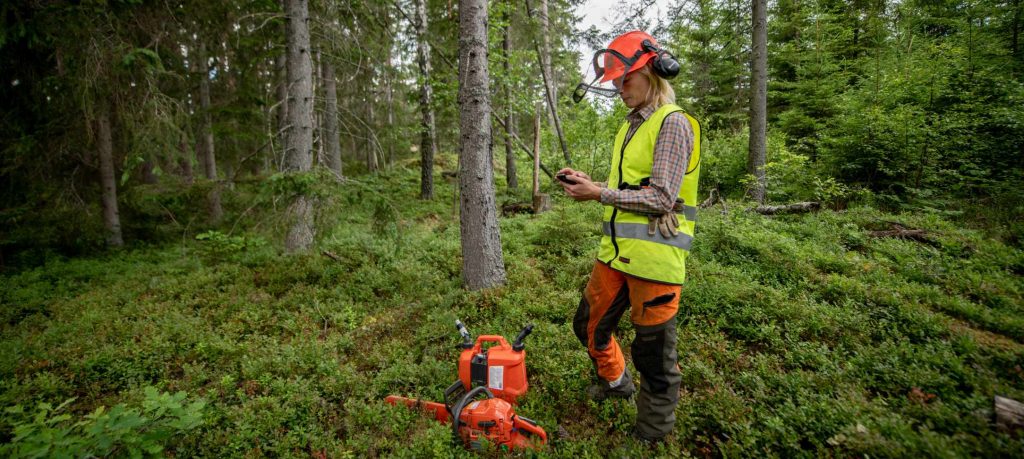
Conclusion
The Forest Stewardship Council (FSC) is the world’s leading certification scheme for responsible forest management. It establishes a framework for businesses, organizations, and individuals to ensure that their wood and paper products are sourced from responsibly managed forests that benefit the environment, society, and economy.
FSC certification ensures that consumers’ purchases support healthy forests and communities while also helping to protect the world’s forests for future generations. As a result, FSC certification benefits forest owners, operators, consumers, governments, and the environment.





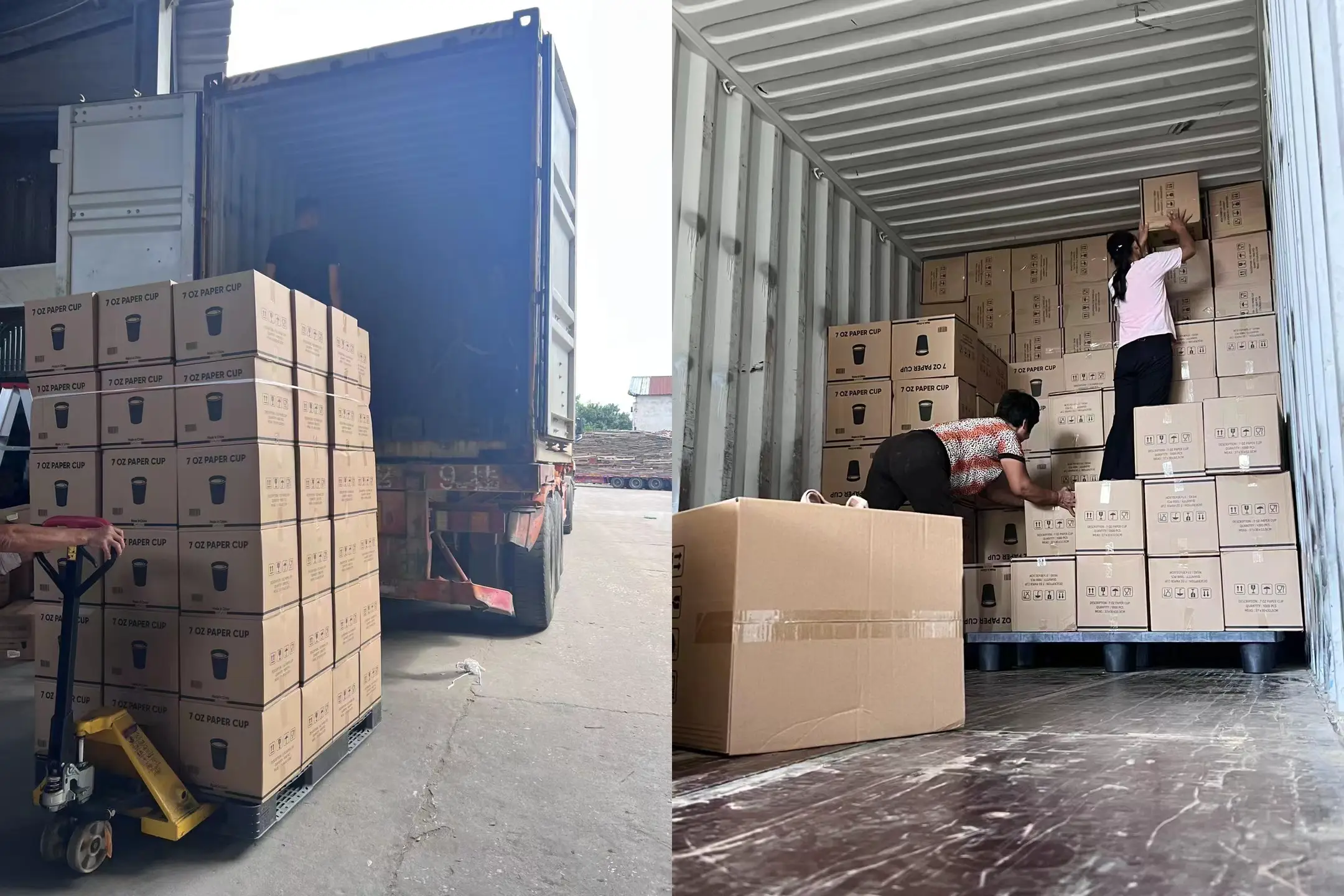


3 Responses
Cómo proceder para la obtención de la certificación para un bosque ubicado en el estado dd Coshuila?
Tendrán algún contacto, su teléfono y su correo que podrían proporcionarme?
Getting FSC (Forest Stewardship Council) certification in South America, or in any region, involves several steps and processes to ensure that forest management and products meet FSC’s sustainability and responsible forestry standards. Here’s a general outline of the steps to obtain FSC certification:
Preparation:
Understand FSC Standards: Familiarize yourself with FSC’s principles and criteria, which include social, environmental, and economic aspects of responsible forest management. You can find these standards on the FSC website.
Identify Eligibility: Ensure your forest or forest-related operation is eligible for FSC certification.
Contact an FSC Accredited Certification Body: https://fsc.org/es/equipos-locales-fsc
FSC certification is usually carried out by independent certification bodies accredited by FSC. You can find a list of these bodies on the FSC website.
Choose a certification body that operates in South America and can provide services in your specific country.
Forest Assessment:
The certification body will conduct a comprehensive assessment of your forest management practices and operations to determine if they meet FSC standards.
This assessment includes on-site visits, stakeholder consultations, and document reviews.
Corrective Action and Improvement:
If the assessment reveals non-compliance with FSC standards, you will receive a Corrective Action Plan outlining necessary improvements.
Implement these improvements and make the necessary changes to align with FSC standards.
Certification Audit:
After corrective actions are taken, the certification body will perform a second audit to ensure compliance with FSC standards.
If all requirements are met, you will receive FSC certification.
Maintain Certification:
Certification is not a one-time event. You must maintain compliance with FSC standards continuously.
Regular audits will be scheduled to ensure ongoing adherence to the standards.
Chain of Custody (CoC) Certification (if applicable):
If your operation involves processing and selling FSC-certified products, you may need Chain of Custody certification to track the flow of certified materials.
Contact the certification body for CoC certification requirements.
Publicize Your Certification:
Once certified, you can use the FSC logo on your products and in marketing materials to showcase your commitment to sustainable forestry.
Engage with Stakeholders:
FSC encourages ongoing engagement with stakeholders, including local communities, to maintain transparency and address concerns.
It’s essential to consult with an FSC-accredited certification body that can provide guidance tailored to your specific location in South America. Regulations and requirements may vary by country and region. Be prepared for a commitment to sustainable forest management practices and the resources needed to maintain FSC certification over time.
Very good blog! Do you have any tips for aspiring writers? I’m planning to start my own website soon but I’m a little lost on everything. Would you propose starting with a free platform like WordPress or go for a paid option? There are so many options out there that I’m totally confused .. Any tips? Kudos!